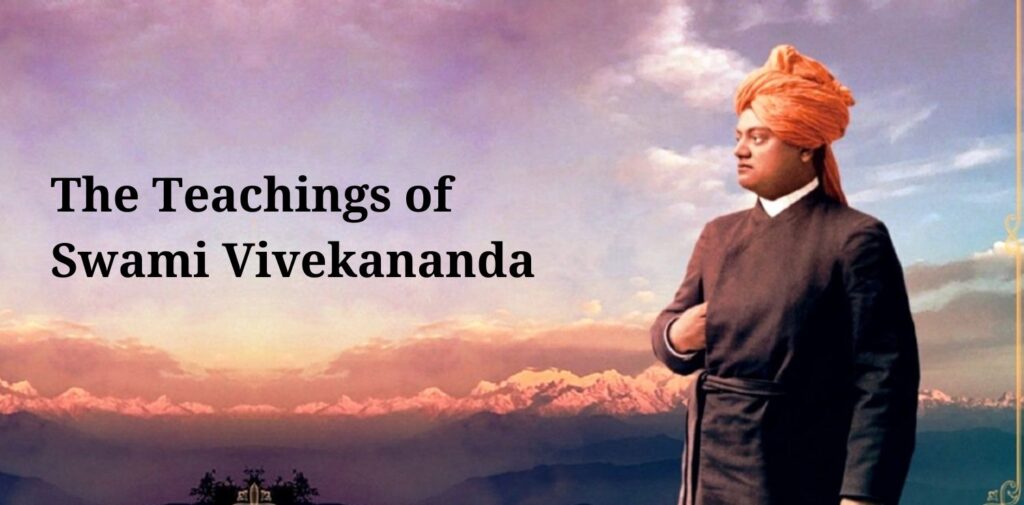Swami Vivekananda Jayanti, celebrated every year on January 12, is an occasion to honor the birth of one of India’s most revered spiritual leaders, Swami Vivekananda. Born in 1863, his teachings have had a profound impact not only on the spiritual and religious landscape of India but also on the world. His ideas on spirituality, education, and social reforms continue to inspire millions even today. As we approach Swami Vivekananda Jayanti 2025 on January 12, 2025, it is an opportune moment to reflect on his contributions and revisit his timeless wisdom.
Who Was Swami Vivekananda?
Swami Vivekananda was born as Narendranath Datta on January 12, 1863, in a well-to-do family in Kolkata (then Calcutta). From a young age, he exhibited remarkable intellectual ability and a deep interest in spiritual matters. His early life was marked by his quest for truth, which led him to study under the guidance of the great spiritual teacher, Sri Ramakrishna Paramahamsa. It was under Ramakrishna’s tutelage that Narendranath transformed into Swami Vivekananda.
Vivekananda’s teachings were a blend of Eastern spirituality and Western philosophy, with a focus on practical aspects of life. He was an advocate for the empowerment of the individual, particularly the youth, and believed that education, both material and spiritual, was the key to achieving human potential.

Swami Vivekananda’s Vision for India
Swami Vivekananda’s vision for India was not limited to religious discourse; he viewed the upliftment of society as an integral part of spiritual development. His primary concern was to alleviate the suffering of the people of India, particularly the poor and downtrodden, and he strongly advocated for social reform. He believed that true spirituality is not confined to temples or rituals but is realized through selfless service to humanity.
Vivekananda was deeply concerned about the social inequalities and the lack of education in India. His famous statement, “Arise, awake, and stop not till the goal is reached,” was an exhortation to the youth to break free from the shackles of ignorance and to pursue knowledge, self-improvement, and service to society.
The Role of Swami Vivekananda in the 1893 Chicago Parliament of Religions
One of the most defining moments in Swami Vivekananda’s life came in 1893 when he represented India at the World Parliament of Religions in Chicago. His speech, delivered on September 11, 1893, remains one of the most iconic addresses in the history of spiritual thought. In his speech, Vivekananda began with the words, “Sisters and brothers of America,” a greeting that immediately endeared him to the audience. He spoke eloquently about the universality of religions, the importance of tolerance, and the need for humanity to embrace unity in diversity.
Vivekananda’s speech at the Parliament made a lasting impression on the global audience. He introduced the world to the rich spiritual traditions of India, particularly Vedanta and Yoga. His message was simple but powerful: True religion is not about rituals or dogma; it is about realizing the divine potential within each individual. This speech marked the beginning of India’s spiritual renaissance in the West and established Swami Vivekananda as a key figure in the global spiritual landscape.

The Teachings of Swami Vivekananda
Swami Vivekananda’s teachings cover a wide range of subjects, from spirituality and philosophy to social issues and education. Some of the core aspects of his philosophy include:
- Self-realization and Divinity Within: Swami Vivekananda emphasized that each individual is divine by nature. His famous teaching, “You are the soul, the eternal, the immortal,” urges individuals to look within and realize their true nature. He believed that realizing one’s divinity is the ultimate purpose of life. The path to this realization, according to Vivekananda, is through meditation, self-discipline, and selfless service.
- The Power of the Youth: Swami Vivekananda was a strong advocate for the empowerment of youth. He believed that the youth are the future of the nation and that their energy, enthusiasm, and idealism can transform society. In his address to the youth, he said, “The youth of India should not only learn to make a living but also to live a noble life.” He encouraged the youth to take responsibility for their own development, both intellectually and morally. His vision for the youth was to see them as leaders who would contribute to the welfare of the nation, particularly by lifting the downtrodden and providing service to society.
- The Importance of Education: For Vivekananda, education was a tool for both personal growth and national transformation. He believed that true education should not only focus on academic learning but also on the development of character, self-confidence, and moral values. He was particularly passionate about empowering women through education, recognizing that the progress of society depends on the upliftment of women.
- Universalism and Tolerance: Swami Vivekananda strongly believed in the concept of religious tolerance. He argued that all religions have their own paths to the same ultimate truth. His famous quote, “Whosoever comes to me, I welcome him, be he a Hindu, a Muslim, a Christian, or a Jew,” reflects his inclusive philosophy. Vivekananda’s vision was that all people, regardless of their religion or background, should come together and work towards the common good of humanity.
- The Need for Service: Swami Vivekananda taught that service to humanity is the highest form of spiritual practice. He believed that serving the poor, the sick, and the marginalized is a way to serve God. According to him, one cannot separate spirituality from social service. His teaching, “They alone live who live for others,” encapsulates this idea. He believed that service to humanity is the most direct way to express love for God.
Swami Vivekananda’s Legacy and Influence
Swami Vivekananda’s ideas have left an indelible mark on India and the world. His contributions to the spiritual, educational, and social spheres continue to influence people worldwide. His teachings laid the foundation for several key institutions in India, including the Ramakrishna Mission, which he established to serve the underprivileged and promote the teachings of Vedanta.
The Ramakrishna Mission runs schools, hospitals, and orphanages, and its influence has spread far beyond India’s borders. It continues to promote the values of selflessness, service, and spiritual growth, adhering to Swami Vivekananda’s vision of a more compassionate and enlightened society.
Swami Vivekananda’s ideas have also influenced numerous thinkers, leaders, and reformers across the world. His emphasis on the unity of religions, his calls for social reform, and his vision for the empowerment of the youth have inspired generations of individuals to strive for excellence in all aspects of life.

Swami Vivekananda Jayanti Celebrations
Swami Vivekananda Jayanti is celebrated across India and worldwide on January 12. Schools, colleges, and organizations commemorate this day by organizing various events, including prayers, speeches, seminars, and cultural performances. Many institutions also hold special programs where students and the public can learn about Vivekananda’s life and teachings.
In Kolkata, where Swami Vivekananda was born, special celebrations are held every year. The Vivekananda Rock Memorial in Kanyakumari, where he meditated in 1892, is another significant site that attracts thousands of devotees and visitors. On Swami Vivekananda Jayanti, various events, including lectures and prayers, are held to honor his legacy.
The occasion is also a time for reflection on his teachings and how they can be applied in the modern world. In schools and colleges, students are encouraged to participate in essay writing competitions, speeches, and discussions on topics related to Swami Vivekananda’s life and philosophy. The focus is on spreading his message of self-realization, social service, and the empowerment of youth.
Conclusion: Swami Vivekananda Jayanti 2025 – Honoring a Visionary Leader
Swami Vivekananda Jayanti is not just a day for remembering a great leader; it is an opportunity to reflect on the values and ideals that he championed. His teachings continue to guide and inspire millions of people around the world to lead lives of purpose, service, and spiritual growth. As we celebrate his birth on January 12, 2025, let us renew our commitment to his vision of a united, compassionate, and enlightened world. Swami Vivekananda’s message, “Arise, awake, and stop not till the goal is reached,” serves as a powerful reminder that the path to personal and societal transformation begins within each of us.




